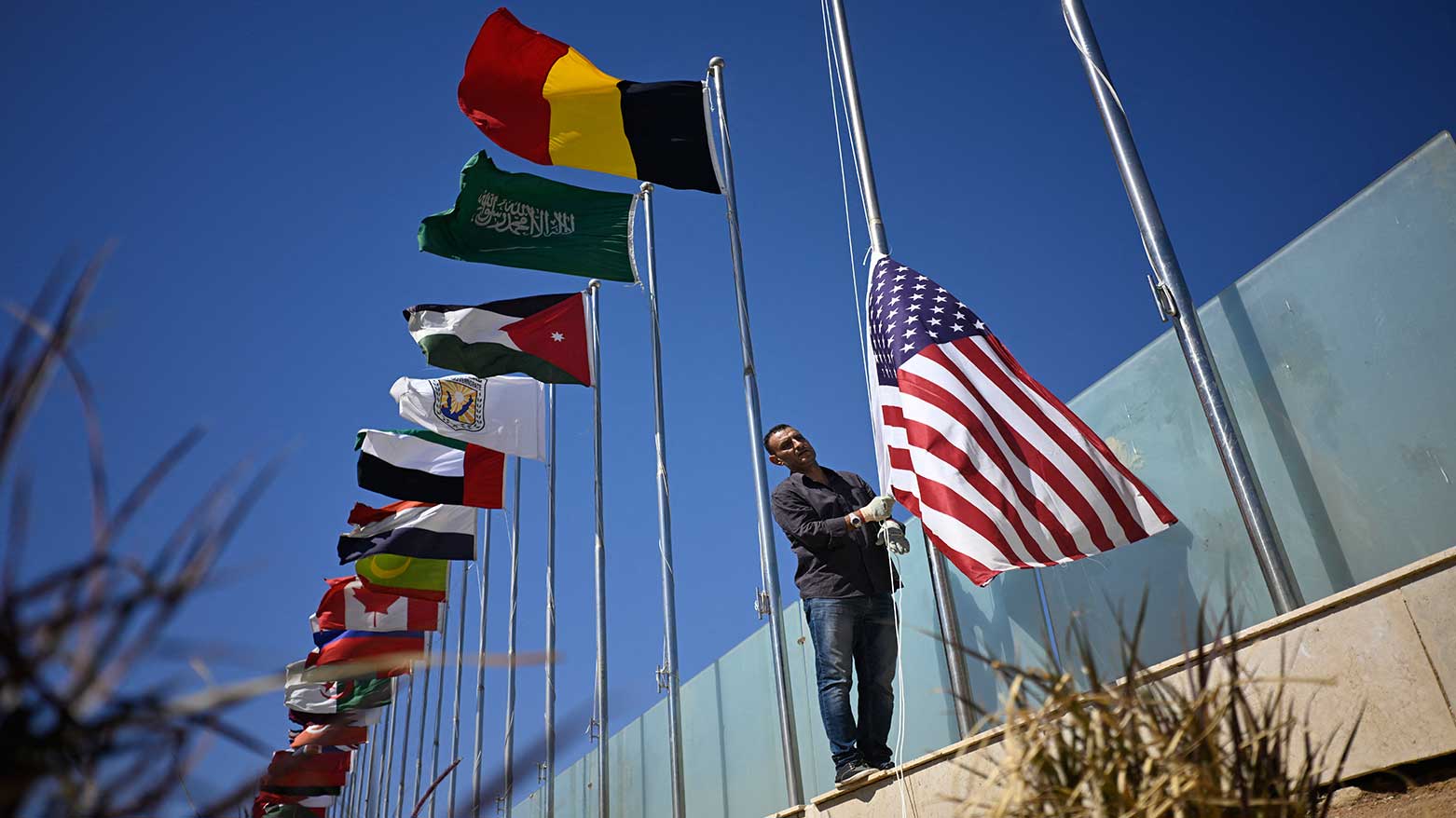US CENTCOM Chief Visits Gaza, Rules Out Deployment of American Troops
Admiral Brad Cooper’s visit aims to launch a multinational stabilization effort in Gaza while reaffirming that no US troops will be deployed inside the territory

ERBIL (Kurdistan24) — The head of the US Central Command (CENTCOM), Admiral Brad Cooper, announced on Saturday that he had visited Gaza to discuss plans for post-conflict stabilization, while emphasizing that no American troops would be deployed inside the war-ravaged territory.
Cooper said on X that his visit focused on establishing a CENTCOM-led civil-military coordination center aimed at supporting conflict stabilization efforts following the fragile ceasefire between Israel and Hamas.
Statement from Adm. Brad Cooper, CENTCOM commander: pic.twitter.com/1TeByRzPoF
— U.S. Central Command (@CENTCOM) October 11, 2025
“America's sons and daughters in uniform are answering the call to deliver peace in the Middle East in support of the Commander in Chief's direction in this historic moment,” Cooper wrote, describing the initiative as a “joint humanitarian and security effort” designed to prevent renewed violence.
While reaffirming that no US forces would be stationed in Gaza, Cooper confirmed that an initial deployment of 200 American troops had arrived in Israel to assist in monitoring the truce under President Donald Trump’s new peace plan.
According to US defense officials, Washington is leading the formation of a multinational task force expected to oversee ceasefire implementation and humanitarian coordination.
The coalition will likely include troops from Egypt, Qatar, Turkey, and the United Arab Emirates — nations that have previously mediated in Gaza-related crises.
Admiral Cooper, who took command of CENTCOM in August, is overseeing Washington’s evolving role in the Middle East as the Biden-Trump transition continues to reshape US regional strategy.
His visit marks the highest-level American military engagement in Gaza since the recent conflict ended.
The trip comes amid cautious optimism over the ceasefire that ended months of intense fighting, during which Israel sought to neutralize Hamas’s militant infrastructure while minimizing civilian harm in Gaza.
The truce — brokered through intense US, Egyptian, and Qatari mediation — has held despite sporadic violations.
Washington’s focus on stabilization reflects growing international recognition that Gaza’s recovery depends on coordinated security guarantees, reconstruction aid, and the gradual return of civilian governance under international supervision.
US President Donald Trump confirmed that he would meet “a lot of leaders” in Egypt on October 13 to discuss Gaza’s post-war future, expressing confidence that the ongoing ceasefire could pave the way for a broader regional peace.
The meeting, expected to include leaders from Israel, Egypt, Jordan, and Gulf states, will focus on reconstruction, security arrangements, and the political framework for Gaza’s governance after the conflict.
Trump has portrayed the ceasefire as a milestone in his administration’s renewed Middle East strategy, which seeks to strengthen Israel’s long-term security while promoting Arab-Israeli normalization and reducing the influence of Iran-backed groups.
Officials in Washington say the upcoming Cairo summit will also explore mechanisms for international funding and oversight of Gaza’s reconstruction — contingent on strict security guarantees to prevent Hamas or other militant factions from re-emerging.
The proposed civil-military coordination center is intended to become the nucleus of a broader international effort to rebuild Gaza’s shattered infrastructure while preventing militant groups from rearming — a challenge that has repeatedly undermined previous peace efforts.
If successful, the initiative could mark the first tangible step toward a sustainable peace framework in Gaza, balancing Israel’s security concerns with the urgent humanitarian and political needs of the Palestinian people.